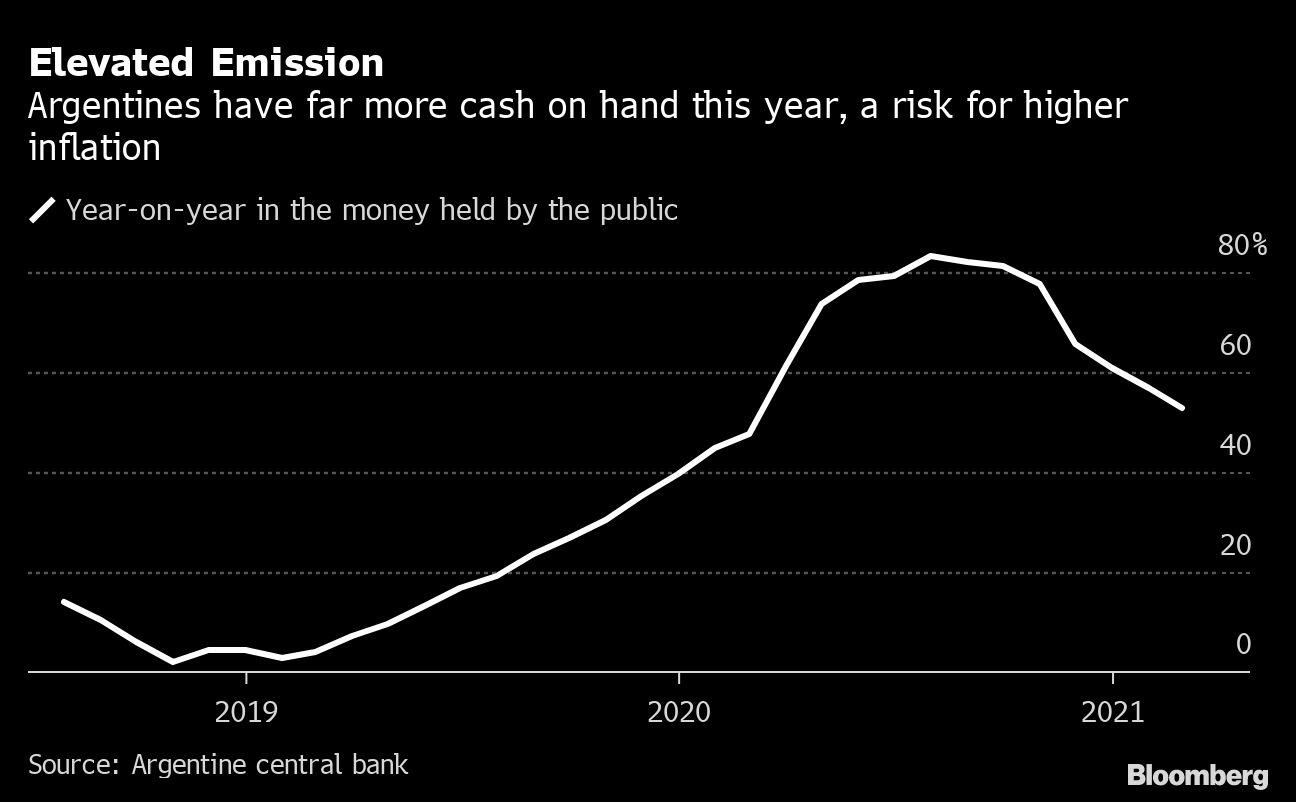MilHojas
Registered
- Joined
- Oct 9, 2007
- Messages
- 1,582
- Likes
- 1,294

Argentina’s Central Bank Move Raises Inflation Concerns
(Bloomberg) -- A measure allowing Argentina’s commercial banks to move part of their reserve requirements from central bank notes to treasury bonds is raising concerns about inflation and the financial system’s health.The country’s central bank said late Thursday that the move is intended to...
